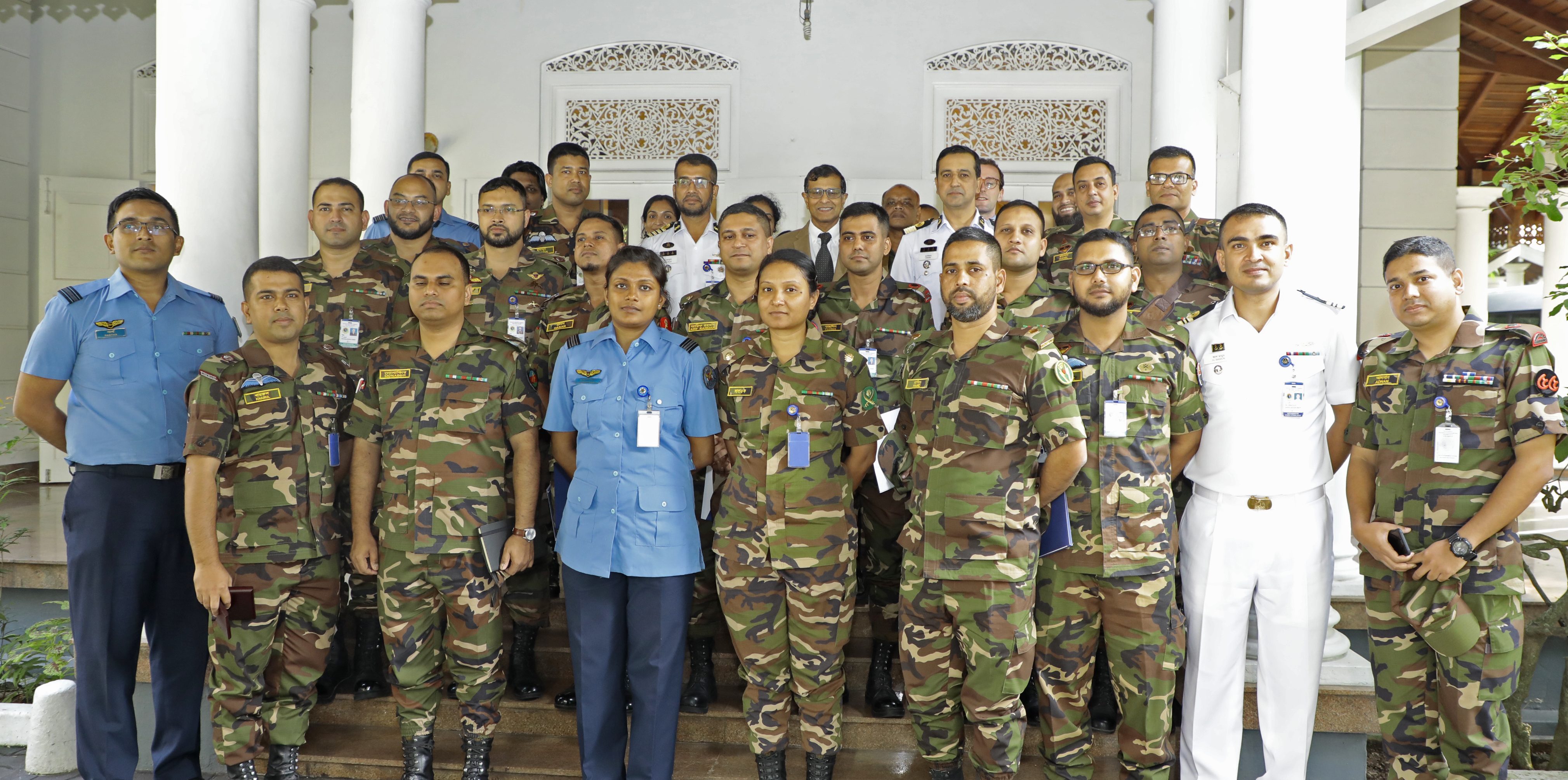
Reading Time: 2 min read
The Lakshman Kadirgamar Institute for International Relations and Strategic Studies (LKI) hosted a 25-member delegation from the Defense Services Command and Staff College Bangladesh, for an LKI Foreign Policy Round Table on 26 November 2018. The delegation was headed by Captain Abdullah Al-Maksus and comprised senior officials from the Bangladesh military.
LKI’s Adam Collins and Malinda Meegoda made two presentations entitled ‘Is the Indian Ocean Economy a New Global Growth Pole?’ and ‘Asia’s Arms Race: Policy Options for Smaller States,’ respectively.
Mr. Collins’s presentation was centred around the growing economic significance of the Indian Ocean region. He highlighted that regional GDP growth is expected to outpace the rest of the world by a significant margin over the coming years. This will make the Indian Ocean an even more important centre of the global economy by 2025. That said, Mr. Collins also noted that in order to take advantage of the opportunities this shift represents, the region must overcome a number of challenges. These include gaps in port infrastructure, regulatory barriers to trade and investment, variations in the level of development between countries in the region, and a weak architecture of regional organisations.
Mr. Meegoda’s presentation focused on the policy options available for a smaller state amidst the emerging arms race in Asia. He outlined some of the major developments that are taking place on the different military operational domains, and the implications for regional security and stability. Mr. Meegoda highlighted that given Sri Lanka’s limited fiscal space, Sri Lanka could look to set spending priorities within a long-term strategic framework that emphasises efficiency, and ‘quality’ over ‘quantity.’
The subsequent discussion was moderated by LKI’s Executive Director, Dr. Ganeshan Wignaraja. The discussion focused on the implications of economic growth and populism for military spending, particularly in small states, environmental threats in the Indian Ocean, and the pursuance of regional cooperation with the simultaneous dominance of a small number of large states.



